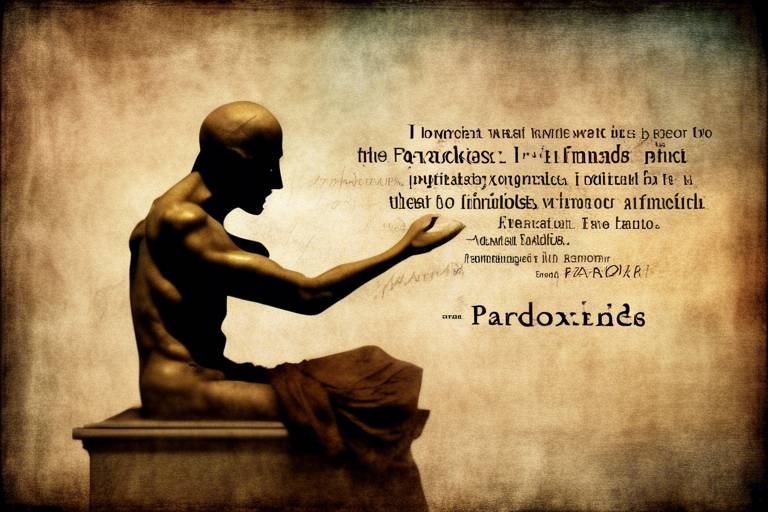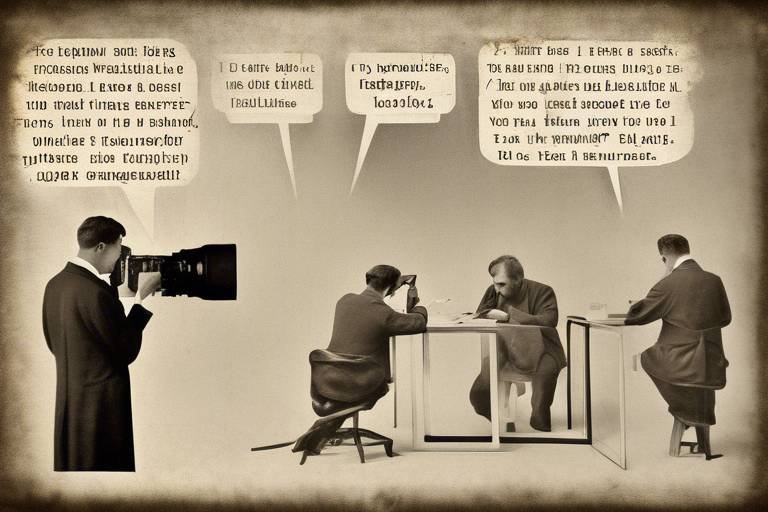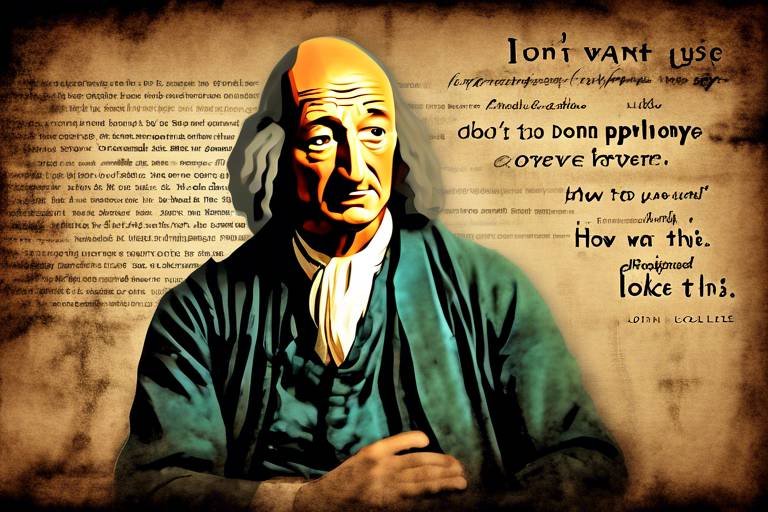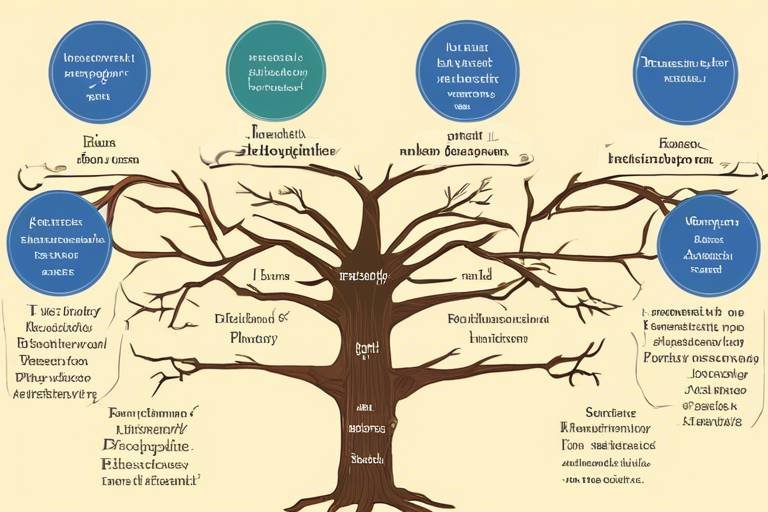The Concept of Paradoxes - Understanding Epimenides' Paradox
Paradoxes have always fascinated humanity, acting as intellectual puzzles that challenge our understanding of truth and logic. They are not just mere contradictions; they often reveal deeper layers of meaning and provoke thought. One of the most compelling examples of a paradox is Epimenides' Paradox, which states, "All Cretans are liars." This seemingly simple statement opens the door to complex discussions about self-reference and truth. In this article, we will dive into the nature of paradoxes, the life of Epimenides, and the implications of his famous assertion.
A paradox is defined as a statement that contradicts itself but may still hold a truth. At first glance, this concept can be perplexing. Imagine a situation where someone claims, "I always lie." If the statement is true, then the person is indeed lying, which means the statement is false. This cyclical nature of paradoxes often leaves us questioning our understanding of reality. Paradoxes are not limited to philosophy; they also appear in mathematics and everyday life, challenging our cognitive frameworks.
Epimenides was a philosopher from Crete, a place known for its rich cultural and intellectual history. His statement, "All Cretans are liars," sparked a whirlwind of philosophical debate. But who was Epimenides, and what was the context in which he lived? Born around the 6th century BC, he was not only a philosopher but also a poet and a religious figure. His life was steeped in the complexities of Cretan society, where notions of truth and deception were often intertwined. Understanding his background helps us appreciate the weight of his paradox.
The historical backdrop of Epimenides' life offers valuable insights into the paradox he presented. Ancient Crete was a society rich in mythology and philosophical thought, where the line between truth and falsehood was often blurred. The Cretans had a reputation for dishonesty, which makes Epimenides' claim all the more intriguing. By exploring the cultural climate of his time, we can better understand how such a statement could emerge and resonate through the ages.
Epimenides' Paradox raises profound questions about the nature of truth and belief. It challenges our foundational concepts in philosophy and forces us to confront the complexities of self-reference. If all Cretans are indeed liars, then Epimenides, being a Cretan, must also be a liar. This creates a logical conundrum that has intrigued philosophers for centuries. The implications of this paradox extend beyond mere semantics; they touch on the very essence of human reasoning and the language we use to communicate our thoughts.
In mathematics, paradoxes like Epimenides' are not uncommon. They often arise in discussions about set theory and logic. For instance, consider Russell's Paradox, which questions whether a set can contain itself. Just as Epimenides' statement leads to a contradiction, Russell's Paradox challenges the foundations of mathematical logic. Mathematicians have developed various frameworks to address these paradoxes, demonstrating that they are not just philosophical curiosities but also critical issues in logical systems.
Fast forward to today, and Epimenides' Paradox continues to influence various fields such as computer science, linguistics, and cognitive science. In computer science, for example, self-referential statements can lead to problems in programming and artificial intelligence. Linguists study such paradoxes to understand how language can create confusion and ambiguity. The relevance of Epimenides' Paradox is a testament to its enduring power to provoke thought and stimulate discussion across disciplines.
Over the years, philosophers and logicians have proposed various approaches to resolve Epimenides' Paradox. From formal logical frameworks to philosophical interpretations, these resolutions offer insights into the nature of truth and self-reference. Understanding these different perspectives is crucial for grasping the significance of the paradox in both philosophical discourse and practical applications.
Logical approaches to resolving Epimenides' Paradox often involve formal systems that can accommodate self-reference without leading to contradictions. One such approach is the use of hierarchical structures in language, where statements can be categorized to avoid self-referential loops. By establishing a framework that separates levels of truth, logicians can navigate the complexities of paradoxes more effectively.
Philosophers have offered a myriad of interpretations of Epimenides' Paradox, each contributing to a broader understanding of truth and contradiction. Some argue that the paradox reveals the limitations of language itself, while others see it as a challenge to our understanding of belief systems. By reviewing these key philosophical perspectives, we can appreciate the rich discourse surrounding the paradox and its implications for our understanding of reality.
- What is a paradox? A paradox is a statement that contradicts itself but may still hold a truth.
- Who was Epimenides? Epimenides was a Cretan philosopher known for his paradoxical statement about Cretans being liars.
- Why is Epimenides' Paradox significant? It challenges our understanding of truth and self-reference, influencing both philosophy and mathematics.
- How do modern fields apply Epimenides' Paradox? Fields like computer science and linguistics study the implications of self-referential statements.
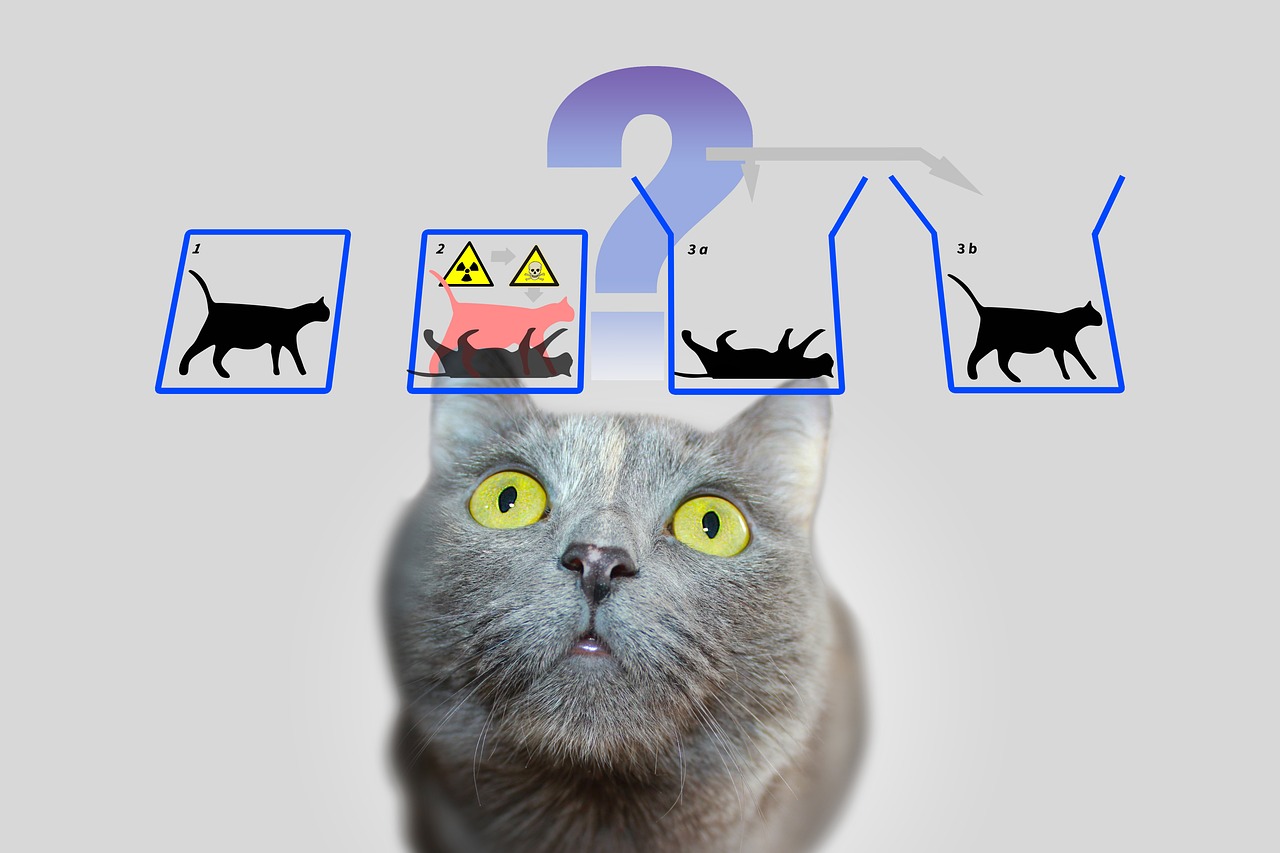
What is a Paradox?
A paradox is a fascinating concept that often leaves us scratching our heads. At its core, a paradox is a statement that seems to contradict itself yet may actually hold a deeper truth. Think of it as a riddle that challenges our understanding of logic and reason. For example, when someone says, "This statement is false," they create a loop that makes it impossible to determine whether the statement is true or false. This self-referential nature is what makes paradoxes so intriguing.
Paradoxes can be found in various fields, including philosophy, mathematics, and even everyday life. They force us to confront our assumptions and question the very foundations of our beliefs. In philosophy, paradoxes often reveal the limitations of our language and the complexities of human thought. In mathematics, they can highlight inconsistencies within a system, prompting mathematicians to refine their theories.
To better understand the essence of paradoxes, let's explore some key characteristics:
- Self-Reference: Many paradoxes involve statements that refer back to themselves, creating a loop that defies conventional logic.
- Contradiction: A paradox often presents conflicting ideas that challenge our understanding of truth and belief.
- Insight: Despite their contradictory nature, paradoxes can reveal profound insights about reality, language, and human cognition.
In essence, paradoxes serve as intellectual puzzles that invite us to think critically and explore the limits of our reasoning. They can be perplexing, yet they also provide a unique lens through which we can examine the complexities of life and thought. As we delve deeper into the world of paradoxes, we will encounter various examples and implications that not only enrich our understanding of logic but also our perception of truth and reality.

Epimenides: The Man Behind the Paradox
Epimenides was not just any philosopher; he was a profound thinker from the ancient island of Crete, living around the 6th century BCE. His most famous declaration, "All Cretans are liars," has sparked endless debates and discussions in the realms of philosophy and logic. But who was this enigmatic figure, and what was the context that birthed such a perplexing statement? Understanding Epimenides requires us to dive into the historical and cultural milieu of ancient Greece, where philosophy was blossoming and the quest for knowledge was at its peak.
To grasp the essence of Epimenides, we must consider the Cretan society of his time. It was a place steeped in rich mythological traditions and a unique perspective on truth and deception. In a culture where storytelling and rhetoric were paramount, the idea of truth was often intertwined with personal and communal identity. This backdrop set the stage for Epimenides to make his bold claim, which, on the surface, appears straightforward yet reveals layers of complexity upon deeper examination.
Epimenides was also known as a poet and a seer, which adds an interesting twist to his philosophical musings. His works often blended the mystical with the rational, making him a pivotal figure in both literature and philosophy. The paradox he introduced is not merely a logical puzzle; it reflects a profound insight into the nature of self-reference and the intricacies of truth. When he proclaimed that all Cretans are liars, he was, in fact, including himself in that statement. This self-referential nature of his claim is what makes the paradox so captivating and perplexing.
Moreover, Epimenides' life was marked by his travels and interactions with various cultures, which undoubtedly influenced his thinking. He was considered a wise man, often sought for counsel, and his views on truth and morality resonated beyond the borders of Crete. His legacy continues to provoke thought and discussion, as scholars and philosophers attempt to unravel the implications of his paradox in modern contexts.
In summary, Epimenides was a multifaceted thinker whose contributions to philosophy extend beyond his famous paradox. His unique perspective on truth, combined with the rich cultural tapestry of ancient Crete, provides a fascinating lens through which we can explore the complexities of human thought and language. Understanding Epimenides is essential not just for grasping the paradox itself, but for appreciating the broader philosophical inquiries it inspires.
- What is Epimenides' Paradox?
Epimenides' Paradox arises from the statement "All Cretans are liars," suggesting that if he is a Cretan, then he must be lying, creating a contradiction. - Why is Epimenides significant in philosophy?
His paradox challenges our understanding of truth and self-reference, prompting deeper inquiries into logic and language. - How does Epimenides' Paradox relate to modern logic?
It influences discussions on self-reference in formal systems and has implications in areas like computer science and linguistics.
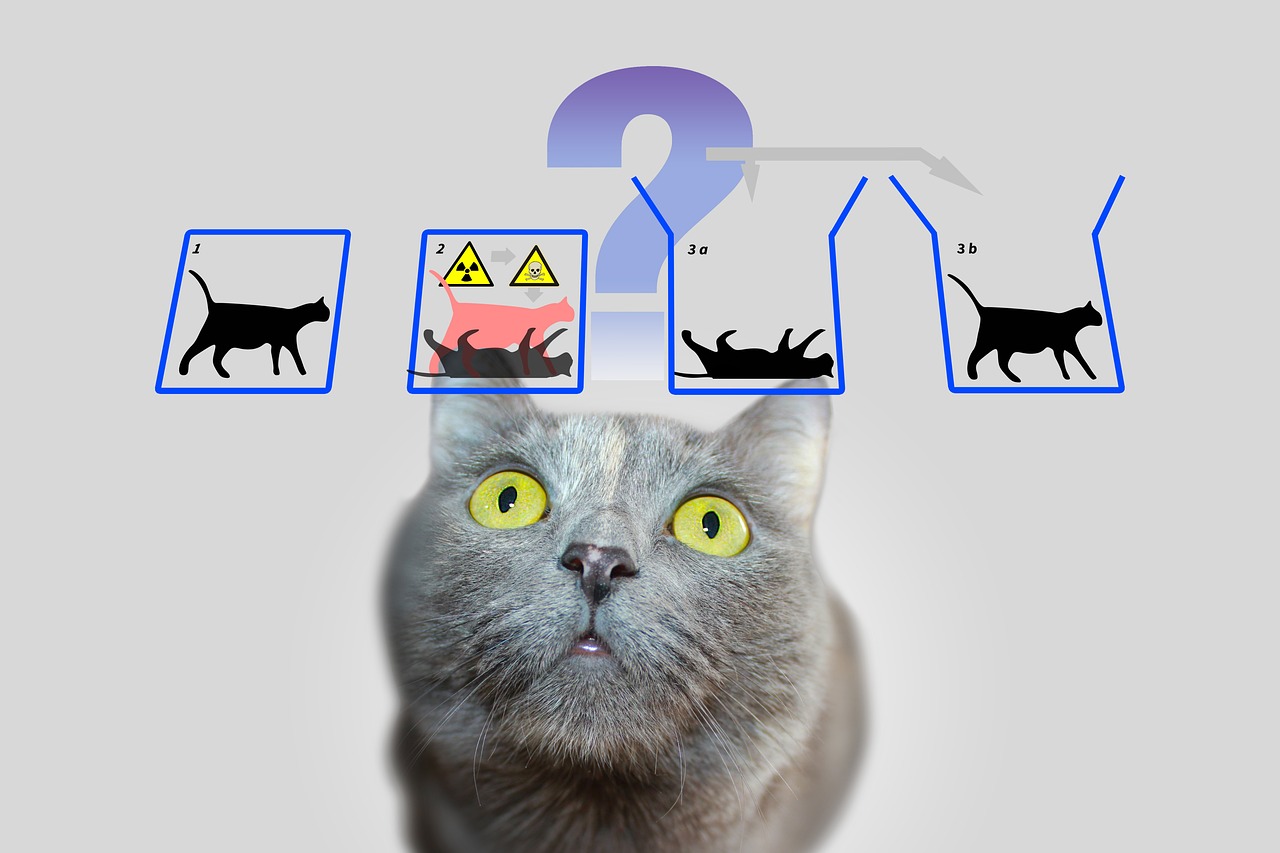
All Cretans are liars
This article explores the intriguing nature of paradoxes, focusing on Epimenides' Paradox, its implications, and its relevance in philosophy and logic.
A paradox is a statement that contradicts itself yet may hold a truth. Understanding its structure is essential for grasping its implications in various fields, including philosophy and mathematics.
Epimenides was a Cretan philosopher whose statement sparked deep philosophical discussions. His life and context provide insight into the origins of this famous paradox.
Imagine being told that everyone from a specific place is a liar. It sounds like a scene from a gripping mystery novel, doesn’t it? Yet, this is the essence of Epimenides' statement: . When Epimenides, a Cretan himself, declared this, he inadvertently opened a Pandora's box of philosophical inquiry. If we take his statement at face value, it leads us to a perplexing conclusion. If all Cretans are indeed liars, then Epimenides, being a Cretan, must also be lying when he claims that all Cretans are liars. This creates a **self-referential loop** that challenges our understanding of truth.
To unpack this further, let’s consider the implications of such a statement. If Epimenides is telling the truth, then his assertion that all Cretans are liars must hold. But if that is the case, then he himself is a liar, contradicting his truthfulness. Conversely, if he is lying, then not all Cretans are liars, which means that some may tell the truth, including Epimenides himself. This paradox not only highlights the complexity of truth but also raises questions about the nature of self-reference in language.
Throughout history, philosophers and logicians have grappled with such statements. The confusion surrounding Epimenides' Paradox serves as a prime example of how language can be both a tool for communication and a source of deep philosophical conundrums. In essence, this paradox challenges us to reconsider our definitions of truth and lies, urging us to explore the nuances that lie beneath seemingly simple statements.
The historical backdrop of Epimenides' life enriches our understanding of the paradox. This section delves into the cultural and philosophical climate of ancient Crete.
The paradox raises questions about truth, belief, and self-reference, challenging foundational concepts in philosophy. Exploring these implications reveals deeper insights into human reasoning and language.
Mathematics often grapples with paradoxes, including those similar to Epimenides'. This section examines how mathematicians address paradoxes and their impact on logical systems.
Epimenides' Paradox continues to resonate today, influencing fields such as computer science, linguistics, and cognitive science. This section discusses contemporary relevance and applications.
Various approaches exist to resolve Epimenides' Paradox, from logical frameworks to philosophical interpretations. Understanding these resolutions is crucial for comprehending the paradox's significance.
This section explores logical approaches to resolving the paradox, including the use of formal systems and theories of truth, shedding light on the nature of self-reference.
Philosophers have offered diverse interpretations of Epimenides' Paradox, each contributing to the broader discourse on truth and contradiction. This section reviews key philosophical perspectives and their implications.
- What is Epimenides' Paradox? - It is a self-referential paradox that arises from the statement "All Cretans are liars," made by Epimenides, a Cretan philosopher.
- Why is it important? - This paradox challenges our understanding of truth and self-reference and has implications in philosophy, logic, and mathematics.
- How does it relate to modern fields? - Epimenides' Paradox influences areas such as computer science, linguistics, and cognitive science, particularly in discussions about truth and language.

sparked deep philosophical discussions. His life and context provide insight into the origins of this famous paradox.
This article explores the intriguing nature of paradoxes, focusing on Epimenides' Paradox, its implications, and its relevance in philosophy and logic.
A paradox is a statement that contradicts itself yet may hold a truth. Understanding its structure is essential for grasping its implications in various fields, including philosophy and mathematics.
Epimenides was a Cretan philosopher whose statement All Cretans are liars sparked deep philosophical discussions. His life and context provide insight into the origins of this famous paradox.
The historical backdrop of Epimenides' life enriches our understanding of the paradox. This section delves into the cultural and philosophical climate of ancient Crete.
The paradox raises questions about truth, belief, and self-reference, challenging foundational concepts in philosophy. Exploring these implications reveals deeper insights into human reasoning and language.
Mathematics often grapples with paradoxes, including those similar to Epimenides'. This section examines how mathematicians address paradoxes and their impact on logical systems.
Epimenides' Paradox continues to resonate today, influencing fields such as computer science, linguistics, and cognitive science. This section discusses contemporary relevance and applications.
Various approaches exist to resolve Epimenides' Paradox, from logical frameworks to philosophical interpretations. Understanding these resolutions is crucial for comprehending the paradox's significance.
This section explores logical approaches to resolving the paradox, including the use of formal systems and theories of truth, shedding light on the nature of self-reference.
Philosophers have offered diverse interpretations of Epimenides' Paradox, each contributing to the broader discourse on truth and contradiction. This section reviews key philosophical perspectives and their implications.
Epimenides was not just a philosopher; he was a product of his time, living in an era where myths and realities often intertwined. His assertion, All Cretans are liars, is not merely a statement but a reflection of the deep-seated cultural beliefs of ancient Crete. This statement, while seemingly straightforward, opens the floodgates to a myriad of philosophical inquiries. How can one claim that all members of a group are dishonest, yet be a member of that same group? This contradiction is the crux of Epimenides' Paradox and highlights the complexity of self-reference in language.
To understand the depth of his paradox, it helps to consider the social and philosophical environment of Crete during Epimenides' time. The island was known for its rich tapestry of myths, legends, and a somewhat skeptical view of truth. Cretans were often depicted as cunning and deceptive, which may have influenced Epimenides' perspective. The paradox challenges us to think critically about the nature of truth and how it is perceived within different cultural contexts.
Moreover, the implications of Epimenides' statement extend beyond philosophy and into the realms of logic and mathematics, prompting thinkers to ponder the nature of contradictions and their resolutions. The discussions sparked by his paradox have led to significant developments in various disciplines, making it a cornerstone of philosophical inquiry. The interplay between truth and deception, especially in self-referential statements, continues to fascinate scholars and laypeople alike.
- What is a paradox? A paradox is a statement that contradicts itself but may contain a hidden truth.
- Who was Epimenides? Epimenides was a Cretan philosopher known for his self-referential paradox.
- What are the implications of Epimenides' Paradox? The paradox raises questions about truth, belief, and self-reference, challenging our understanding of these concepts.
- How does Epimenides' Paradox relate to modern fields? It influences areas such as computer science, linguistics, and cognitive science, particularly in discussions about truth and logic.

The Historical Context of Epimenides' Paradox
To truly grasp the essence of Epimenides' Paradox, we must first dive into the historical context surrounding its origin. Epimenides was a philosopher from Crete, a Greek island known not only for its stunning landscapes but also for its rich cultural and philosophical heritage. Living during the 6th century BCE, Epimenides was part of a society that was deeply engaged in the exploration of truth, morality, and the nature of existence. This was a time when philosophy was beginning to take shape as a discipline, and thinkers were questioning the very fabric of reality.
In ancient Greece, the concept of truth was not merely a matter of factual accuracy; it was intertwined with the ideas of honor and credibility. The Cretans, in particular, had a reputation for being shrewd and cunning, often viewed with skepticism by outsiders. This cultural backdrop is crucial for understanding why Epimenides' statement, "All Cretans are liars," became such a profound paradox. It not only reflects a self-referential contradiction but also highlights the complexities of identity and perception in a society where truth and deceit could easily blur.
The philosophical climate of the time was ripe for such explorations. Thinkers like Heraclitus and Pythagoras were already challenging conventional wisdom, paving the way for a deeper inquiry into the nature of knowledge and belief. In this context, Epimenides' assertion can be seen as a bold challenge to the prevailing notions of honesty and reliability. It raises questions that resonate through the ages: What does it mean to be truthful? Can one truly know themselves if their very identity is tied to a contradiction?
Moreover, the paradox has implications beyond mere philosophy; it intersects with the realms of linguistics and logic. The way we construct sentences and the meanings we ascribe to them can lead to similar contradictions, echoing the challenges faced by Epimenides. This historical context enriches our understanding and appreciation of the paradox, making it not just a philosophical curiosity but a reflection of human thought and language.
In conclusion, the historical backdrop of Epimenides' life provides a fascinating lens through which to examine his paradox. It invites us to consider the intricate web of cultural, philosophical, and linguistic factors that contribute to our understanding of truth and contradiction. As we delve deeper into the implications of the paradox, we uncover layers of meaning that challenge our perceptions and provoke further inquiry into the nature of reality itself.
- What is Epimenides' Paradox? - It is a self-referential paradox stemming from the statement, "All Cretans are liars," made by Epimenides, a Cretan philosopher.
- Why is historical context important? - Understanding the historical context helps us appreciate the cultural and philosophical dynamics that shaped Epimenides' ideas and the implications of his paradox.
- How does this paradox affect modern philosophy? - It challenges foundational concepts of truth and belief, influencing various fields such as logic, linguistics, and cognitive science.

Philosophical Implications of the Paradox
Epimenides' Paradox is not just a quirky statement; it opens up a Pandora's box of philosophical implications that challenge our understanding of truth and belief. When Epimenides, a Cretan philosopher, declared that "All Cretans are liars," he inadvertently threw a wrench into the gears of logic and self-reference. This paradox invites us to ponder: What does it mean to assert something that contradicts itself? Is truth an absolute concept, or is it more fluid, shaped by context and perspective?
To grasp the weight of this paradox, we must consider the concept of self-reference. When a statement refers back to itself, it can create a loop that defies conventional logic. For instance, if Epimenides is telling the truth, then as a Cretan, he must be lying, which leads to a contradiction. Conversely, if he is lying, then his statement must be false, implying that not all Cretans are liars, thus making him a truth-teller. This circular reasoning is a classic example of how self-reference can complicate our understanding of truth.
Moreover, Epimenides' Paradox touches upon the nature of belief. It raises the question of whether we can ever truly know something if the very framework of our understanding is built on contradictory statements. This leads us to consider the implications for epistemology, the study of knowledge. Are our beliefs founded on solid ground, or are they merely constructs that can be dismantled by a single paradoxical statement? The implications of this line of questioning are profound, as they challenge the reliability of our knowledge systems.
In the realm of philosophy, discussions surrounding Epimenides' Paradox often lead to a broader exploration of truth theories. Various philosophical schools, such as correspondence theory, coherence theory, and pragmatism, offer different lenses through which to view truth. For instance, correspondence theory posits that truth is what corresponds to reality, while coherence theory suggests that truth is a matter of consistency among beliefs. The paradox forces us to confront the limitations of these theories, as it seems to exist outside the boundaries of traditional definitions of truth.
To further illustrate the philosophical implications, consider the following table that summarizes key philosophical perspectives on truth in relation to Epimenides' Paradox:
| Philosophical Theory | Definition | Relation to Paradox |
|---|---|---|
| Correspondence Theory | Truth corresponds to facts or reality. | Challenges the notion of objective truth. |
| Coherence Theory | Truth is a matter of consistency within a set of beliefs. | Highlights the instability of belief systems. |
| Pragmatism | Truth is what works in practical terms. | Raises questions about the utility of contradictory statements. |
In essence, Epimenides' Paradox serves as a philosophical mirror, reflecting our assumptions about truth and belief. It encourages us to delve deeper into the nature of self-reference, the reliability of our knowledge, and the frameworks we use to define truth. By engaging with this paradox, we not only expand our understanding of philosophy but also challenge our perceptions of reality itself.
- What is Epimenides' Paradox?
Epimenides' Paradox arises from the statement "All Cretans are liars," which creates a self-referential contradiction.
- Why is this paradox important in philosophy?
It challenges our understanding of truth, belief, and self-reference, prompting deeper inquiries into the nature of knowledge.
- How does this paradox relate to modern logic?
It has implications for formal systems and theories of truth, influencing discussions in mathematics and computer science.

Mathematical Perspectives on Paradoxes
When we dive into the realm of mathematics, paradoxes emerge as fascinating anomalies that challenge our understanding of logic and truth. Much like a magician performing a sleight of hand, these paradoxes can make us question the very foundations of mathematical reasoning. One of the most famous examples, similar to Epimenides' Paradox, is the liar paradox, which states, "This statement is false." Such statements create a loop of contradictions that mathematicians have pondered for centuries.
Mathematicians often grapple with these paradoxes to refine their logical frameworks. For instance, consider the famous Russell's Paradox, which questions whether a set that contains all sets that do not contain themselves contains itself. This paradox led to significant developments in set theory and logic, prompting mathematicians to seek more robust axiomatic systems. The implications are profound, as they force us to reconsider the nature of sets and their definitions.
In addressing these mathematical paradoxes, several approaches have emerged:
- Formal Systems: Mathematicians have developed formal systems, like Zermelo-Fraenkel set theory, to avoid the pitfalls of paradoxes. These systems impose strict rules to prevent contradictions from arising.
- Type Theory: Another approach is type theory, which categorizes objects into types to manage self-reference and avoid paradoxical statements.
- Non-classical Logics: Some logicians explore non-classical logics, such as paraconsistent logic, which allows for contradictions to exist without collapsing into complete incoherence.
These methods not only help resolve specific paradoxes but also enrich our understanding of mathematical truth. They encourage a deeper examination of how we define mathematical objects and the relationships between them. As we navigate these complexities, we come to appreciate that paradoxes are not merely obstacles; they are gateways to greater insight.
Moreover, the study of paradoxes in mathematics has implications beyond the discipline itself. For example, in computer science, understanding paradoxes can enhance algorithms and programming languages. By recognizing how self-referential statements can lead to errors, developers can create more robust systems that handle such cases gracefully. Similarly, in linguistics, the exploration of paradoxical statements sheds light on the intricacies of language and meaning, revealing how our words can sometimes entrap us in contradictions.
In conclusion, the mathematical perspectives on paradoxes serve as a reminder that even in a field as precise as mathematics, there are still mysteries to unravel. Paradoxes challenge our assumptions, encourage innovation in logical frameworks, and deepen our understanding of truth itself. They are not just puzzles to be solved; they are essential to the evolution of mathematical thought.
- What is a paradox in mathematics? A paradox in mathematics is a statement or proposition that contradicts itself, leading to a conclusion that seems logically unacceptable.
- How do mathematicians resolve paradoxes? Mathematicians resolve paradoxes by developing formal systems, utilizing type theory, and exploring non-classical logics to avoid contradictions.
- Why are paradoxes important in mathematics? Paradoxes are important because they challenge our understanding of logical systems and can lead to significant advancements in mathematical theories.

Modern Applications of Epimenides' Paradox
Epimenides' Paradox is not just a relic of ancient philosophy; it has surprisingly profound implications in modern fields such as computer science, linguistics, and cognitive science. In the realm of computer science, for instance, the paradox highlights challenges in self-referential statements and circular logic. This is particularly relevant in programming languages and artificial intelligence, where systems must accurately interpret and manage statements that refer back to themselves. Think about it: if a machine can't resolve a statement like "this statement is false," how can it reliably process information? The implications are vast, affecting everything from algorithm design to natural language processing.
In linguistics, Epimenides' Paradox raises fascinating questions about meaning and reference. When we communicate, the words we choose can sometimes create contradictions that challenge our understanding of language itself. For example, consider the phrase "I always lie." If true, it must be false, leading to a linguistic conundrum. This paradox pushes linguists to explore how language can simultaneously convey truth and falsehood, impacting theories of semantics and pragmatics.
Moreover, in the field of cognitive science, the paradox invites us to examine how humans process contradictory information. Our brains are wired to seek coherence, yet we often encounter situations where truth is not straightforward. This cognitive dissonance can lead to interesting psychological phenomena, influencing how we form beliefs and make decisions. By studying Epimenides' Paradox, researchers can better understand the complexities of human reasoning and the mental gymnastics we perform when faced with self-referential statements.
In summary, the modern applications of Epimenides' Paradox extend well beyond its historical roots. It serves as a bridge connecting ancient philosophical inquiries with contemporary challenges in technology, language, and human cognition. As we navigate an increasingly complex world filled with information—much of it contradictory—grasping the nuances of this paradox becomes ever more essential.
- What is Epimenides' Paradox?
Epimenides' Paradox arises from the statement "All Cretans are liars," made by Epimenides, a Cretan philosopher. It creates a logical contradiction regarding the truthfulness of the statement itself. - How does Epimenides' Paradox relate to modern technology?
This paradox is relevant in computer science, particularly in programming and artificial intelligence, where self-referential statements can create logical challenges. - Can Epimenides' Paradox be resolved?
Various logical and philosophical approaches have been proposed to resolve the paradox, including formal systems and theories of truth. - What are the philosophical implications of this paradox?
It challenges our understanding of truth, belief, and self-reference, prompting deeper inquiries into the nature of language and reasoning.

Resolving the Paradox
When faced with the intriguing challenge posed by Epimenides' Paradox, one might wonder how to untangle the web of contradictions it presents. The paradox, encapsulated in the statement "All Cretans are liars," forces us to confront the complexities of truth and self-reference. How can we reconcile a statement that seems to negate itself while simultaneously holding a kernel of truth? To tackle this, various approaches have emerged, each offering a unique lens through which we can view the paradox.
One of the most prominent methods for resolving Epimenides' Paradox is through the lens of logical frameworks. These frameworks often employ formal systems that categorize statements based on their truth values. For instance, in classical logic, a statement must be either true or false, but Epimenides' assertion creates a scenario where it seems to occupy both states simultaneously. To address this, logicians have developed systems like paraconsistent logic, which allows for contradictions to exist without leading to an explosion of falsehoods across all statements. This approach acknowledges that some contradictions can be true in specific contexts, thereby providing a more nuanced understanding of self-referential statements.
Another fascinating angle comes from philosophical interpretations. Philosophers have long debated the implications of self-reference and truth, and Epimenides' Paradox serves as a rich case study. Some argue that the paradox highlights the limitations of language itself. After all, if we cannot adequately express truth without falling into contradiction, what does that say about our understanding of reality? This line of thinking encourages deeper reflection on the nature of truth, belief, and our cognitive processes. In this regard, the paradox acts as a mirror reflecting our own struggles with understanding and articulating complex ideas.
Furthermore, it's essential to consider the contextual nature of truth. Some interpretations suggest that the truth of a statement can vary based on the circumstances surrounding it. For example, if we take Epimenides' statement in a broader context—perhaps considering the societal norms and beliefs of ancient Crete—we might find that the statement holds different implications than it does when viewed in isolation. This contextual understanding can help mitigate the paradox by framing the statement within a specific cultural and historical backdrop, allowing for a more comprehensive exploration of its meaning.
As we delve into the realm of modern applications, we see that the implications of resolving Epimenides' Paradox extend beyond philosophy and logic. In fields like computer science and linguistics, the challenges posed by self-referential statements have led to advancements in programming languages and natural language processing. By understanding the intricacies of such paradoxes, developers can create more robust systems that better handle ambiguity and contradiction, ultimately enhancing communication between humans and machines.
In summary, resolving Epimenides' Paradox is not merely an academic exercise; it invites us to explore the very foundations of truth and language. Through logical frameworks, philosophical interpretations, and contextual analysis, we can gain valuable insights into the nature of contradictions and their relevance in our everyday lives. The paradox serves as a reminder that our quest for understanding is often fraught with complexities, yet it is precisely these challenges that enrich our intellectual journey.
- What is Epimenides' Paradox? - It is a self-referential paradox originating from a statement made by the Cretan philosopher Epimenides, claiming that "All Cretans are liars."
- How do logical frameworks resolve the paradox? - Logical frameworks, such as paraconsistent logic, allow for contradictions to exist without leading to false conclusions across all statements.
- What are the philosophical implications of this paradox? - The paradox challenges our understanding of truth, belief, and the limitations of language, prompting deeper reflection on these concepts.
- How is Epimenides' Paradox relevant today? - It influences various fields, including computer science and linguistics, by informing how we handle self-reference and ambiguity in language and logic.

Logical Solutions to the Paradox
When we dive into the depths of Epimenides' Paradox, we find ourselves tangled in a web of self-reference and contradiction. To untangle this knot, various logical solutions have been proposed, aiming to clarify the paradox and provide a framework for understanding its implications. One of the primary approaches is through the lens of formal logic, where statements are analyzed based on their truth values. In this context, a statement can be categorized as either true or false, but Epimenides' assertion blurs these lines, leading to fascinating discussions.
One notable solution is the hierarchical approach, which suggests that statements about statements can be placed into different levels or layers. For instance, if we declare that "All Cretans are liars," we can create a distinction between the statement itself and the act of making that statement. By doing this, we can argue that Epimenides, as a Cretan, is making a statement about a group that does not necessarily apply to himself. This creates a logical space where his assertion can be interpreted without leading to a contradiction.
Another significant approach is the theory of types, developed by philosopher Bertrand Russell. This theory posits that statements must be categorized into types to avoid self-referential paradoxes. By assigning different types to statements, we can prevent them from referring back to themselves in a way that creates logical inconsistencies. For example, we can classify Epimenides' statement as a type that does not apply to itself, thus allowing for a resolution of the paradox.
Moreover, the contextual interpretation of statements offers another intriguing solution. Here, the focus shifts to the context in which a statement is made. If we consider the cultural and historical background of Epimenides, we might infer that his statement was meant to convey a particular sentiment about the nature of truth in Cretan society, rather than a literal assertion about every individual. This interpretation suggests that understanding the context can significantly alter our perception of the statement's truth value.
In addition to these approaches, paraconsistent logic provides a fascinating avenue for exploring paradoxes. This type of logic allows for contradictions to exist without leading to triviality, meaning that not all contradictions invalidate a logical system. By applying paraconsistent logic, we can accept Epimenides' statement as both true and false, thus accommodating the paradox without discrediting the entire framework of logic.
Ultimately, the exploration of logical solutions to Epimenides' Paradox not only enhances our understanding of this specific case but also enriches our grasp of the broader implications of self-reference in language and thought. The pursuit of clarity in these paradoxical waters invites us to think critically about truth and belief, pushing the boundaries of traditional logic. As we navigate through these logical landscapes, we uncover profound insights that resonate across various fields, from philosophy to computer science.
- What is Epimenides' Paradox? - It is a self-referential paradox stemming from the statement "All Cretans are liars," made by the Cretan philosopher Epimenides.
- How does the hierarchical approach work? - This approach distinguishes between different levels of statements to resolve contradictions arising from self-reference.
- What is paraconsistent logic? - A logical system that allows for contradictions to exist without leading to logical inconsistency.
- Why is context important in understanding paradoxes? - Context helps interpret statements in a way that may reveal their intended meaning, potentially avoiding contradictions.

Philosophical Interpretations
When we dive into the philosophical interpretations of Epimenides' Paradox, we enter a realm where the boundaries of truth and contradiction blur. This paradox, encapsulated in the statement "All Cretans are liars," challenges our understanding of self-reference and truthfulness. It raises profound questions: Can a statement be both true and false? How do we navigate the murky waters of self-referential claims without drowning in confusion?
Philosophers have approached this paradox from various angles, each offering unique insights that enrich our comprehension of truth. One prominent interpretation comes from the realm of epistemology, which is the study of knowledge. Here, the paradox serves as a catalyst for discussions about belief and justification. If a Cretan asserts that "All Cretans are liars," can we trust this assertion? The crux of the matter lies in the distinction between truth and belief. Just because a statement is believed to be true does not necessarily make it so. This leads to the consideration of context—the circumstances under which a statement is made can significantly influence its truth value.
Another philosophical perspective involves the concept of self-reference. The paradox exemplifies how self-referential statements can lead to inconsistencies. If Epimenides is telling the truth, then he is indeed a liar, creating a logical contradiction. Conversely, if he is lying, then his statement must be false, implying that not all Cretans are liars. This tug-of-war between truth and falsehood showcases the complexities of language and meaning, prompting philosophers to explore the limitations of formal logic in capturing the nuances of human expression.
In addition, the paradox invites discussions about semantic theories of truth. Some philosophers argue for a deflationary theory, which posits that asserting a statement is true is merely a linguistic convenience rather than an assertion of a deeper reality. In this view, the paradox does not necessarily lead to a contradiction but rather highlights the limitations of our linguistic frameworks. On the other hand, correspondence theories suggest that truth is a matter of how statements correspond to the world. This perspective raises further questions: What does it mean for a statement to correspond to reality when it is inherently self-referential?
Ultimately, the philosophical interpretations of Epimenides' Paradox serve as a mirror reflecting our struggles with truth, language, and self-reference. They challenge us to rethink our assumptions and consider the implications of our statements in a world where contradictions can coexist. As we navigate this intricate landscape, we find ourselves pondering not just the nature of truth, but also the very foundations of our understanding.
- What is Epimenides' Paradox? - It is a statement made by Epimenides, a Cretan philosopher, claiming that "All Cretans are liars," which creates a self-referential contradiction.
- Why is it important in philosophy? - The paradox challenges our understanding of truth, belief, and self-reference, prompting deeper discussions about the nature of knowledge and language.
- How do philosophers interpret this paradox? - Philosophers offer various interpretations, including epistemological, self-referential, and semantic theories, each contributing to the discourse on truth and contradiction.
- Can Epimenides' Paradox be resolved? - While there are logical frameworks and philosophical interpretations that attempt to resolve the paradox, it remains a topic of debate and exploration in philosophical circles.
Frequently Asked Questions
- What exactly is a paradox?
A paradox is a statement that seems to contradict itself but may actually reveal a deeper truth. It's like a puzzle for the mind, challenging our understanding of logic and reality. For example, when we say, "This statement is false," we find ourselves in a loop of confusion, making us question the nature of truth itself.
- Who was Epimenides and why is he significant?
Epimenides was a Cretan philosopher known for his intriguing statement, "All Cretans are liars." This bold claim sparked a whirlwind of philosophical debates about self-reference and truth. His significance lies in how his paradox has influenced discussions in philosophy, logic, and even mathematics, making us rethink the way we perceive statements about ourselves and others.
- How does Epimenides' Paradox relate to modern logic?
Epimenides' Paradox has profound implications in modern logic, particularly in the study of self-referential statements. It challenges the foundations of logical systems and encourages mathematicians and logicians to explore frameworks that can accommodate such contradictions. This exploration leads to a better understanding of truth and consistency in formal systems.
- What are some real-world applications of this paradox?
This paradox isn't just an abstract concept; it finds relevance in various fields today. In computer science, for instance, it influences programming languages and algorithms that deal with self-reference. Linguistics and cognitive science also draw on these ideas to understand how humans process contradictory information and language.
- Can Epimenides' Paradox be resolved?
Yes, there are several approaches to resolving Epimenides' Paradox. Logical frameworks, such as formal systems and theories of truth, offer ways to navigate the contradictions. Philosophers also provide diverse interpretations that contribute to the ongoing discourse about truth, belief, and self-reference, revealing that while the paradox may be complex, it can lead to enlightening discussions.

